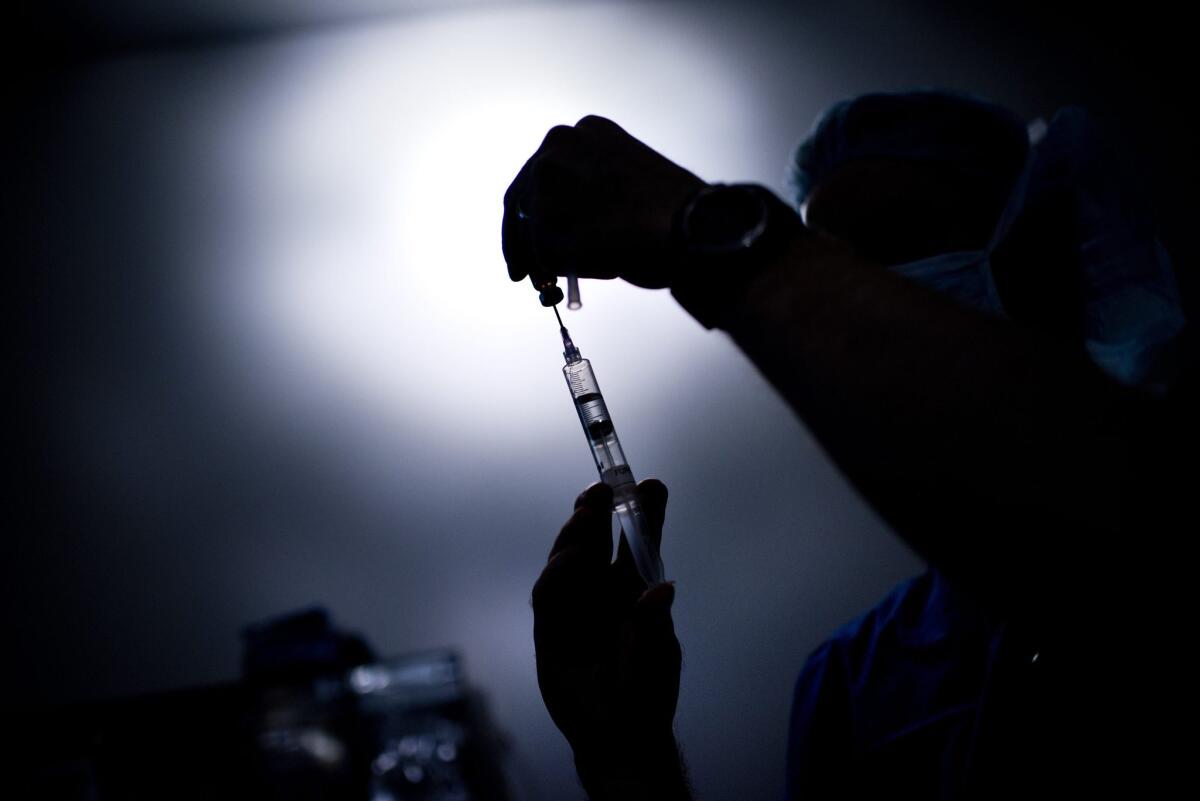Signs of depression are ‘unacceptably high’ among doctors in training, study finds

An analysis of questionnaires answered by 17,560 medical interns and residents found that symptoms of depression are widespread among doctors in training.
- Share via
For young doctors fresh out of medical school, the grueling years of internship and residency prepare them for a career of making life-or-death decisions and learning to get by on too little sleep. But for too many new doctors, these training years also provide a crash course in depression.
Nearly one-third of interns and residents experience depressive symptoms or full-blown depression at some point during their training, according to an analysis published Tuesday in the Journal of the American Medical Assn.
That’s not only ironic -- considering that their profession exists to heal the sick, not the other way around -- it’s also dangerous for patients, since depressed doctors are more likely to provide poor care and make medical errors.
“The medical profession has a major problem,” Dr. Thomas S. Schwenk, dean of the University of Nevada School of Medicine, wrote in an editorial that accompanies the study. “These findings could be easily construed as describing a depression endemic among residents and fellows.”
Signs of depression were seen in interns and residents from all over the world and in all kinds of medical specialties, according to the study. Though different diagnostic methods turned up differing levels of depressive symptoms, all of them revealed mental health problems whose extent was “extraordinarily” and “unacceptably high,” Schwenk wrote.
Study leader Dr. Douglas A. Mata, who is himself a resident in pathology at Brigham and Women’s Hospital in Boston, and his colleagues analyzed data from 54 earlier studies involving 17,560 physicians in training. Some of these studies assessed new doctors at a single point in time; others tracked them through up to six years of internship and residency.
Nearly two-thirds of the studies involved doctors in North America. Others focused on residencies in Asia, Europe, South America and Africa.
The 54 studies employed more than half a dozen kinds of questionnaires to evaluate depressive symptoms in interns and residents. Although filling out a questionnaire isn’t as rigorous as an interview with a psychiatrist, the fact that a survey can be answered anonymously might produce more honest and accurate results, Mata and his colleagues wrote.
When all of the results were pooled, the prevalence of depression or depressive symptoms was 29%, according to the study. The range among the studies was 21% to 43%.
A secondary analysis involving 5,425 trainees who were assessed using higher-quality questionnaires found that 20% of them had signs of major depressive disorder. This “may better reflect the true prevalence of major depression,” the study authors wrote.
Studies conducted in the U.S. reported roughly the same prevalence of depression and depressive symptoms as studies conducted elsewhere, according to the JAMA report. They found no significant difference for studies focused on interns only compared with those involving interns and residents, nor did it matter whether residents were in medical specialties or surgical ones.
However, they did notice that the more recently a study was conducted, the more widespread the depressive symptoms.
That finding suggests that efforts to make residency programs more humane by instituting limits on work hours have not had the desired effect, the study authors wrote.
In his editorial, Schwenk called on the medical establishment to consider “more fundamental change” in the way new doctors are trained.
“The profession purportedly recognizes the importance of health and wellness, but the value system of the current training environment makes clear to residents the unacceptability of staying home when ill, or asking for coverage when a child or parent is in need, and in expressing vulnerability in the face of overwhelming emotional and physical demands,” he wrote.
“What is the medical profession willing and able to do about it?”
Follow me on Twitter @LATkarenkaplan and “like” Los Angeles Times Science & Health on Facebook.






